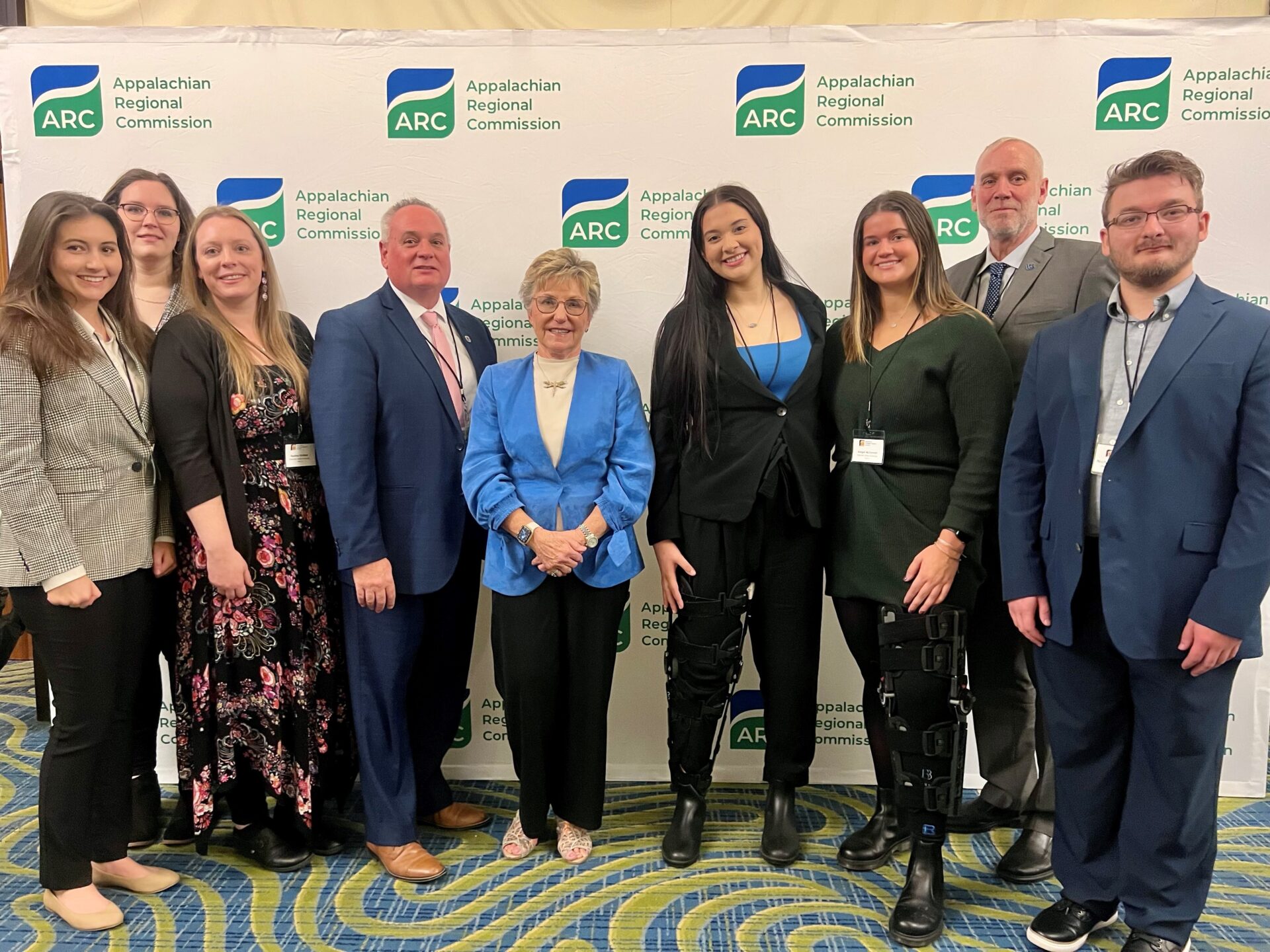A delegation from Glenville State University is among the 130 students from 10 colleges and universities gathered in Washington D.C. this weekend for an Appalachian Regional Commission (ARC) research symposium on economic development.
ARC Co-Chair Gayle Manchin said the gathering goes beyond stressing the importance of Appalachia’s academic institutions.
“It’s not just about a class project or about a grade but about the impact that that research can continue to do across the region,” Manchin said.
Ashley Nicholas is majoring in management at Glenville State. Her group’s affordable housing research found challenges in filling job openings in Gilmer and Calhoun Counties. Nicholas said they found faculty and staff vacancies at Glenville State and job openings at the Federal Corrections Institute and Hamilton Hospital related to a lack of working-class housing.
“There’s a lot of dilapidated housing, land hoarding issues that just need to be cleaned up,” Nicholas said. “So that we have the moderately priced income housing that these professionals need to come to the area.”
Other symposium issues under discussion deal with agriculture, tourism, health care and accessibility.
Manchin said finding answers to social problems gives these students a sharper focus on their future.
“Just the fact that they begin to sense that they have a place that they have a role to play in that community is very vital,” she said.
Glenville State’s delegation spoke with Sen. Joe Manchin about the jobs and housing problems. He said he would review their research and asked them to take things a step further.
“He recommended we create a community committee when we get back,” Nicholas said “So it’s not just Glenville State University’s project, it’s a community project.”
Nicholas says that the ‘town and gown’ committee will work with both county commissions to hopefully turn research into a positive reality.
The other student delegation’s participating in the ARC’s 23rd annual Appalachian Collegiate Research Initiative (ACRI) symposium include:
Alfred State College, Alfred, New York
Appalachian State University, Boone, North Carolina
Auburn University, Auburn, Alabama,
East Tennessee State University, Johnson City, Tennessee
Frostburg State University, Frostburg, Maryland
Indiana University of Pennsylvania, Indiana, Pennsylvania
Morehead State University, Morehead, Kentucky
Muskingum University, New Concord, Ohio,
Seton Hill University, Greensburg, Pennsylvania
University of Pittsburgh, Pittsburgh, Pennsylvania,
University of Tennessee, Knoxville, Tennessee
Virginia Tech, Blacksburg, Virginia
An ARC press release said that since 2001, nearly 3,000 college and graduate students from 31 colleges and universities across Appalachia have participated in the ACRI. The release said that many students have gone on to careers in economic and community development across the region, applying what they learned in ACRI to strengthen the region.
